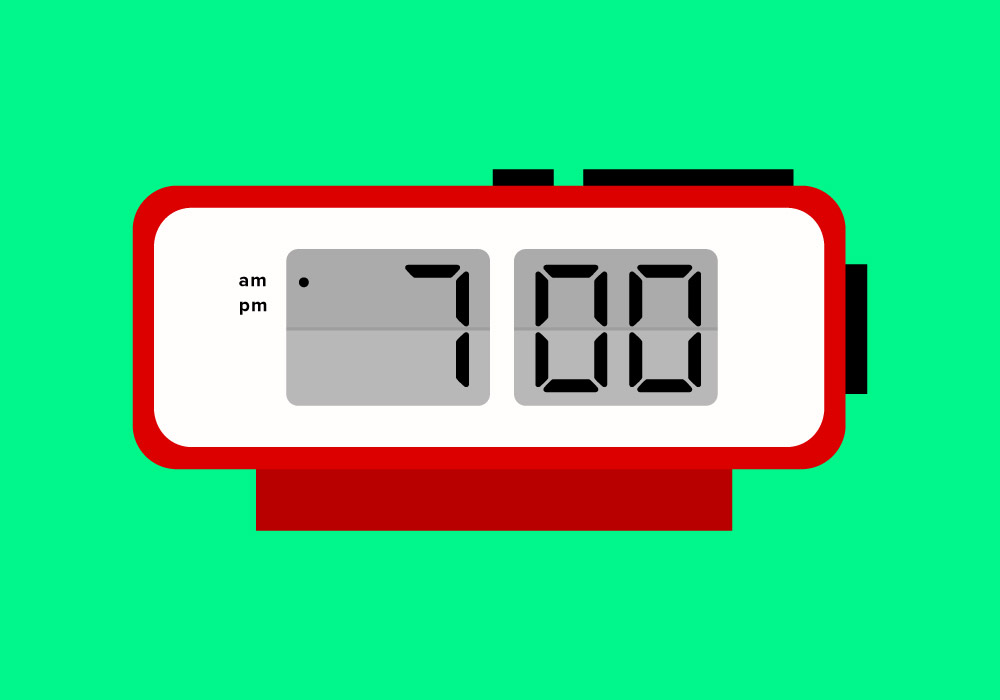
Night Owls get a bad rap, so let’s get one thing out of the way: there is nothing wrong with staying up late as long as you’re getting a good amount of sleep every night (and not using those extra hours to fuel unhealthy habits). Similarly, larks have no special biological advantage: recent research has upended the long-held belief that morning people are healthier than late risers. What research has not disproved, however, is that morning people tend to be more conscientious, agreeable and hardworking–and that means they also tend to get more done.
The productivity expert Laura Vanderkam, who has written several books about time management, including What the Most Successful People Do Before Breakfast, argues that people should consider switching their schedule not because it’s necessarily better but because it’s practical.
“People find morning hours useful because it’s time you have to yourself before everybody else wants a piece of you,” Vanderkam says. Waking up earlier to work out, make headway on a creative project or enjoy a stress-free cup of coffee (without a smartphone in your hand) can help reframe your morning, making it easier to accomplish more without sacrificing time for yourself.
Here, some advice from experts on how to pull it off.
FIGHT SLEEP INERTIA
When you wake up in the middle of the night, a physiological state called sleep inertia helps you fall back asleep. But that same state is responsible for your morning grogginess. To get your body going, Michael Grandner, a sleep expert at the University of Arizona College of Medicine, recommends doing some stretches, drinking some water or taking a shower right after your alarm goes off.
GET MOVING
Studies show that you’re more likely to stick with an exercise regimen if you do it at the same time every day, and working out first thing in the morning just makes sense, as it’s less likely that something will come up suddenly to derail your plans. “Our mornings tend to be more regimented,” says Vanderkam. Plus, getting it out of the way before work means you need to shower only once.
MIND YOUR LIGHT EXPOSURE
Morning light exposure can help recalibrate your internal clock and regulate your levels of the sleep hormone melatonin, making you less out of it when you rise. “Getting morning light is the most important thing you can do,” says Grandner. “It immediately sends your body a wake-up signal.” The opposite is also true: nighttime light exposure (yes, even the light from your smartphone) can perk you up–and interfere with your brain’s transition into rest mode.
BRIBE YOURSELF
Humans do not naturally gravitate toward punishment, so if your morning routine feels like one, it’s time to change how you start your day. Instead of warring with the snooze button, motivate yourself with a reward. Vanderkam suggests you treat yourself to something–a fried egg, a fancy latte–that will get you moving.
DO SOMETHING OTHER THAN WORK (OR SOMETHING THAT FEELS LIKE WORK)
Some of the most successful larks Vanderkam has interviewed say they start the day doing something they truly enjoy. So instead of rolling over and reading the news on your tablet, consider meeting a friend for a jog, reading a chapter of a novel or writing in a journal. “It’s a lot easier to get up and do something you want to do than something you don’t,” says Vanderkam.
More Must-Reads From TIME
- The 100 Most Influential People of 2024
- Coco Gauff Is Playing for Herself Now
- Scenes From Pro-Palestinian Encampments Across U.S. Universities
- 6 Compliments That Land Every Time
- If You're Dating Right Now , You're Brave: Column
- The AI That Could Heal a Divided Internet
- Fallout Is a Brilliant Model for the Future of Video Game Adaptations
- Want Weekly Recs on What to Watch, Read, and More? Sign Up for Worth Your Time
Contact us at letters@time.com